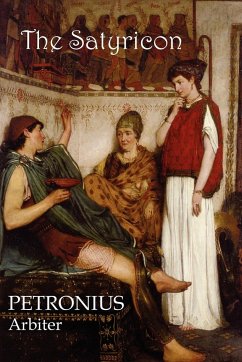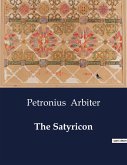As long as life remains, there's hope; Thou rustic God, oh hear our prayer, Great Priapus, I thee invoke, Temper our arms to dare! Bawdy and sublime, coarse and elegant, decadent to the core and yet permeated with a peculiarly innocent ancient mindset, The Satyricon by Gaius Petronius, Arbiter Elegantiae of the court of Nero, is a controversial work of Roman fiction. Each one will find what suits his taste, one thing is not for all, One gathers roses as his share, another thorns enthrall. The Satyricon is a combination of prose and poetry, aphorisms and erotica. Only a few fragments remain of the grandiose original. Over the centuries a number of skillful forgeries were created to fill in the gaps, in an attempt to elucidate and sometimes surpass the sensual pleasures of the original. For who knows not the pleasures Venus gives? Who will not in a warm bed tease his members? Great Epicurus taught a truth that lives; Love and enjoy life! All the rest is embers.








